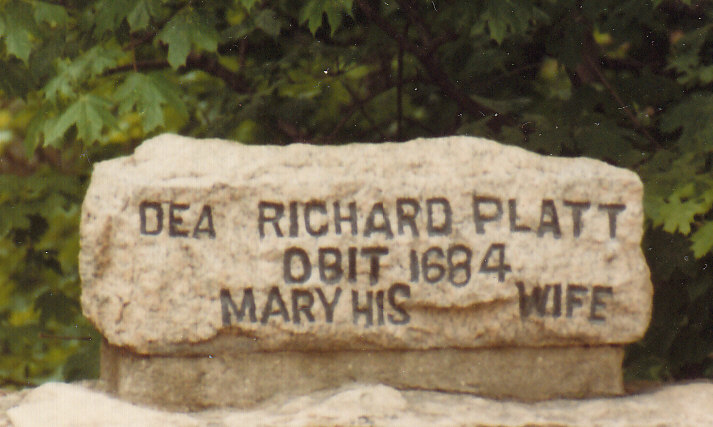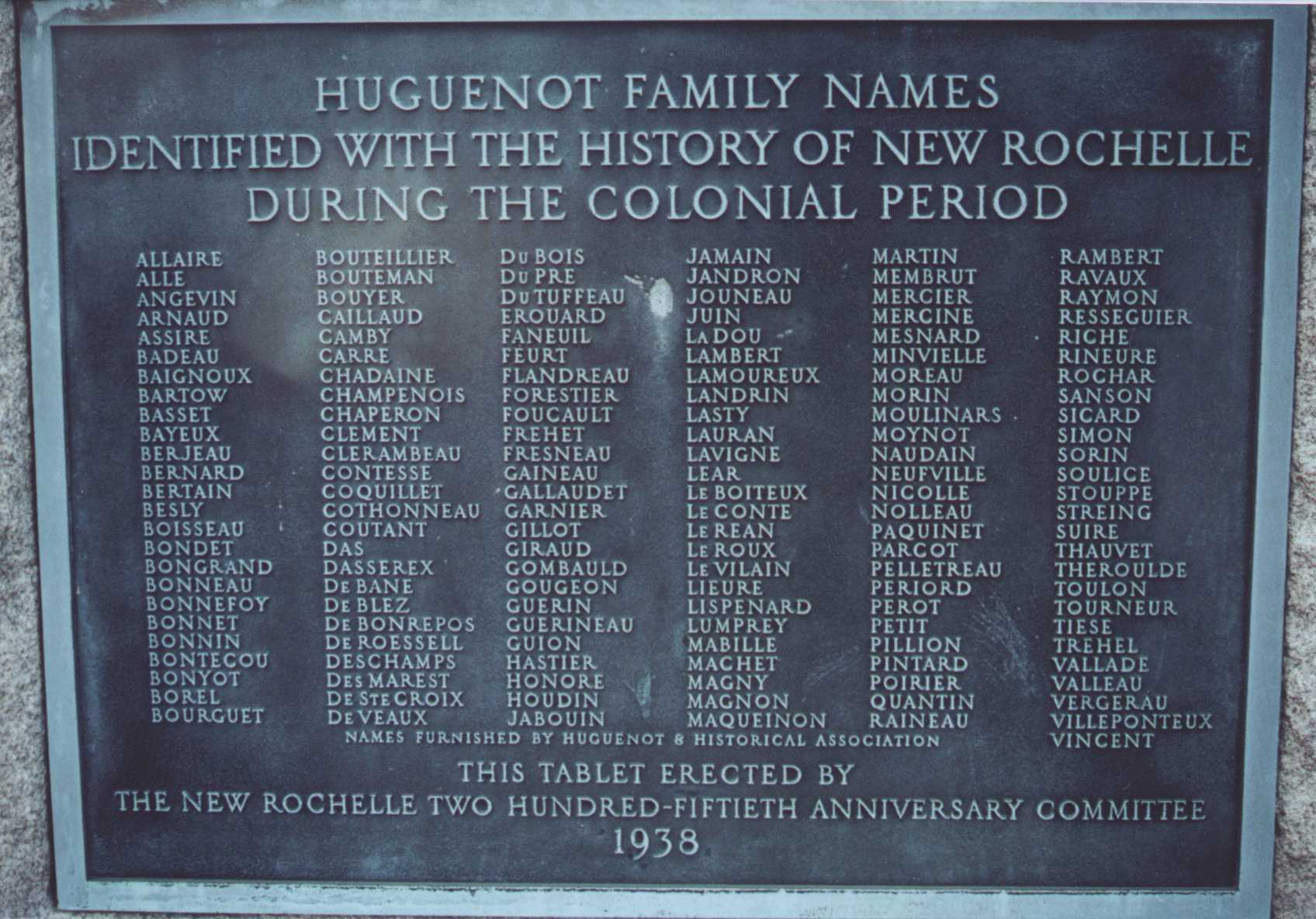Diaspora
Richard Gildersleeve 1601–1681
Tenth Great Grandfather
Richard Gildersleeve was born in 1601 in Suffolk, England. Richard passed away in 1681 in Hempstead, Long Island, New York.
Andrews, Charles M. "A Biographical Bypath Through Early New England History." New England Magazine Feb. 1893. Web.
There is a brief account in Besse. Sufferings of the People called Quakers. II. pp. 182-3. "Robert Hodgson went to Hampstead and he had a Meeting with some of his Friends who dwelt there; where he met with barbarous Usage. He was brought before one Geldersleeve, a magistrate," etc. This was the first persecution under the Dutch, and took place in 1657.
Besse, Joseph. A Collection of the Sufferings of the People Called Quakers. Vol. II. London, 1753. 182. Web.
Robert Hodgſon went to Hamſtead, and had a Meeting with some of his Friends who dwelt there; where he met with barbarous Uſage: He was brought before one Gelderſleeve, a Magiſtrate there, who ſent him to Priſon, and rode to the Dutch Governour to inform him what he had done; and returning with a Guard of Muſquetiers, they ſearched the Priſoner, and took away his Bible and Papers, and kept him pinion'd all Night, and next Day enquiring who had entertained him, took into Cuſtody two Women, one of whom had a Child ſucking at her Breaſt. They put the Women into a Cart, and faſtened Robert to the Cart's Tail, pinion'd, and ſo drew him through the Woods in the Night, whereby he was grievouſly hurt; thus they brought him back to New-Amſterdam, now New-York, and put him into a naſty Dungeon, wherein were many Vermin, and the Women into another Place of Confinement.
Gildersleeve, Willard Harvey. Gildersleeves of Gildersleeve, Conn. Meriden, 1914. 7-8. Web.
Richard Gildersleeve, born in 1601 in County Suffolk, England, came to America in the Puritan Emigration of 1630-1640. Pausing at Watertown, Mass., he joined the small band of Puritan settlers who set out through the wilderness to settle the new colony of Connecticut. He made a home for himself in 1636, at Wethersfield, on the west side of High street, facing the Common near the river. He was one of the earliest proprietors of Naubuc Farms in Glastonbury when it was first surveyed. Discontented with conditions here, he journeyed down to the new colony just planted at New Haven where he was enrolled among the first proprietors of New Haven Colony in 1639. In 1641, he moved from Wethersfield to Stamford, Conn., where he was deputy to the General Court at New Haven. In 1644, he moved over with the first settlers of Hempstead, Long Island, N. Y., where he soon became one of the most influential and largest land proprietors. He was a "schepen," or Dutch magistrate under Governor Stuyveseant, 1644-1664. The first persecution of the Quakers by the Dutch came as a result of Magistrate Gildersleeve's activity.
During the Dutch-Indian War, he lived in Newtown, L. I., as one of the first proprietors and magistrates, 1652-1656. In 1664, when New York was captured by the English, he was appointed colonial commissioner by Connecticut. However, by the Duke of York's patent he became a royal subject once more. In 1669, he was one of that notable gathering of deputies from the English towns of Long Island who framed a petition, which fairly breathed the spirit of liberty manifested in the Declaration of Independence later. Lovelace, the Royal governor, had oppressed the towns severely. Mr. Gildersleeve, as deputy of Hempstead, refused absolutely to pay taxes without representation. It is impossible to say what would have happened, if, in 1673, New York had not been captured by the Dutch.
In 1674, New York was restored to the English. Richard Gildersleeve was deputy to New York to the Dutch Council. He also held very many offices of trust and honor in the town besides figuring in many of the exchanges of vast tracts of land. His main occupation lasting through life was that of surveyor. He was a Puritan of Puritans, fiery, and intolerant, strict and harsh in his official duties, but then the times were harsh enough to try the most heroic soul amidst the early settlements of the United States. He represented the town in all its dealings with the Indians, especially with Tackapousha, Sachem of the Marsapeage Indians. His wife was born in 1601 and witnessed in 1676 the final Indian exchange. He had three children, Richard, Samuel and Anna, the wife of John Smith, Nant., who came from Nantucket.
Richard Platt 1604–1684
Ancestor (0)
Richard Platt was baptized on May 6, 1604 in Ware, Hertfordshire, England. Richard married Mary Wood on Jan. 26, 1629 in Roydon, Essex, England. He passed away in 1684 in Milford, Connecticut.
Matthias Sention
Eleventh Great Grandfather
Matthias Sention was born in England. Matthias married Mary Tinker on Nov. 1, 1627 in England. He passed away on Oct. 19, 1669 in Norwalk, Connecticut. He was buried in Norwalk.
Jean Many 1670–1703
Ninth Great Grandfather
Jean Many was born in 1670 in Meschers-sur-Gironde, Charente-Maritime, Nouvelle-Aquitaine, France. Jean married Jeanne Machet. He died in 1703 in New York.
Baird, Charles W. History of the Huguenot Emigration to America. Vol. II. New York, 1885. 38. Web.
Jean, brother of Jacques, known as Captain Many, married Jeanne, eldest daughter of Jean Machet.
"Brouwer Genealogy." RootsWeb. Ancestry. Web.
John Many is recorded on the tax list in New York City from 1696 through 1699. He lived in the East Ward in one of two houses owned by Carsten (Christopher) Luerson. Capt. William Kidd was living in the next house during some of those years (this has resulted in some descendants speculating that Jean and his brothers, may too, have been involved in piracy). In the 1703 census he is living in the South Ward.
Jordan, John W. Encyclopedia of Pennsylvania Biography. Vol. III. New York, 1914. 938. Web.
Two brothers, Jacques and Jean Maney, lived at Meschers, a village on the Gironee, France, the latter being a sea captain and known as Captain Maney. They were Huguenots and fled to England, probably at the revocation of the Edict of Nantes, in 1685. From England they came to America, joining the Narragansett colony in Rhode Island in 1686. Jacques married Anne, daughter of Francois Vincent, both of them being members of the Huguenot church in New York in 1692. Jean married, prior to 1696, Jeanne, daughter of Jean Machet, and was a member of the same church.
Waters, Edward Stanley. "Notes on Some Huguenot Families." Proceedings of the Huguenot Society of America. Vol. III. New York, 1903. 268-69. Web.
MAGNY–MANY
Jean was apparently the elder brother of Jacques, with whom he was denizened, London, Apl. 15, 1693.
He is called "cappitaine," and like his brother, commanded a ship in the West India trade. May 19, 1701, the "Brigantine Lawrell, John Many, Master, from Jamaica" arrived. About 1700 is found an account of sums paid for John Machet, Jr., since the decease of John, his father, by John Manny in the sickness and at the death of the said J. M. Jr. decd., in Jamaica, £13. He md. Jeanne, dau. of Jean & Jeanne (Thomas) Machet of New Rochelle, to whom admn. on his estate, "late of N. Y., lately decd." was granted May 22, 1703. His inventory contained one bible, two silver spoons, six silver forks, one negro woman and her —. In money £200. Presd. by James Many & Elias Boudinot, Feb. 2, 1703/4. She was living in 1706.
By wife Jeanne he had issue:
I. ELIZABETH, b. Dec. 6, a deux heures apres minuit, 1696, bap. 13, pres. par Pierre Machet et Elizh. Fulheux.
II. JEAN, b. Aug. 31, bap. Sept. 28, 1698; pres par Mr. Jean Pinaud et Made. Marianne Machet.
Signed JEAN MANY.
J. PINOS,
MARIANNE MACHET.
III. JACQUES, b. Oct. 5, bap. 12, 1700 par Mr. Peiret, pres. par Jacques Many et Anne Vincens.
These brothers were perhaps the James Many and John Many, who signed the Act of Opposition to the dismissal of the Rev. Mr. Rou, Sept. 24, 1724.
Jeanne Machet Pelletreau
Ninth Great Grandmother
Jeanne Machet was born in La Tremblade, Charente-Maritime, Nouvelle-Aquitaine, France. Jeanne married Jean Many in 1696. She married Elie Pelletreau in 1710. She died in New York.
Jean Machet
Tenth Great Grandfather
Jean Machet was born in La Tremblade, Charente-Maritime, Nouvelle-Aquitaine, France. Jean married Jeanne Thomas in 1662 in France. He passed away in 1699 in New York.
Jeanne Thomas Machet
Tenth Great Grandmother
Jeanne Thomas was born in France. Jeanne married Jean Machet in 1662 in France. She passed away in 1708 in New Rochelle, New York.

